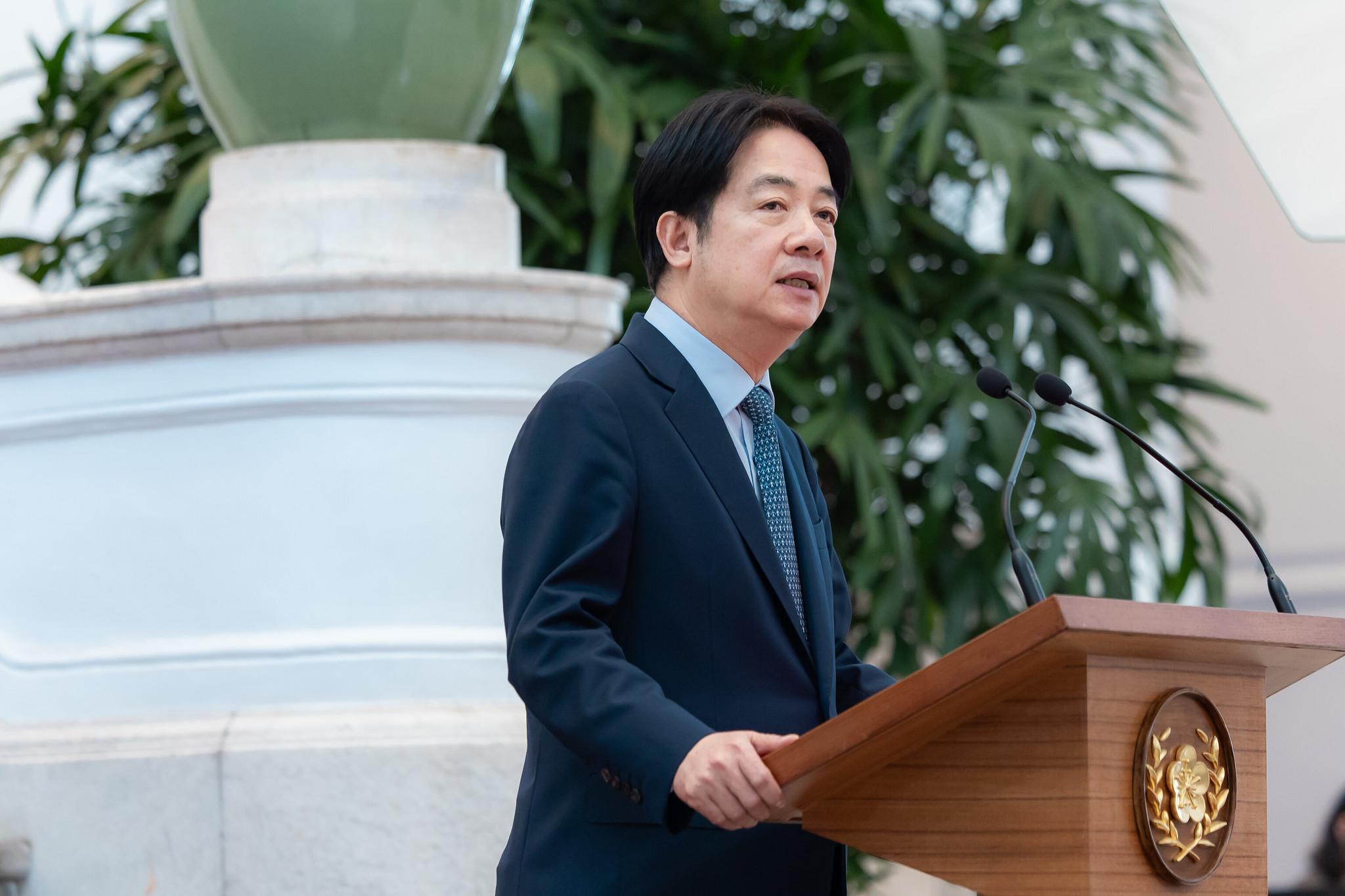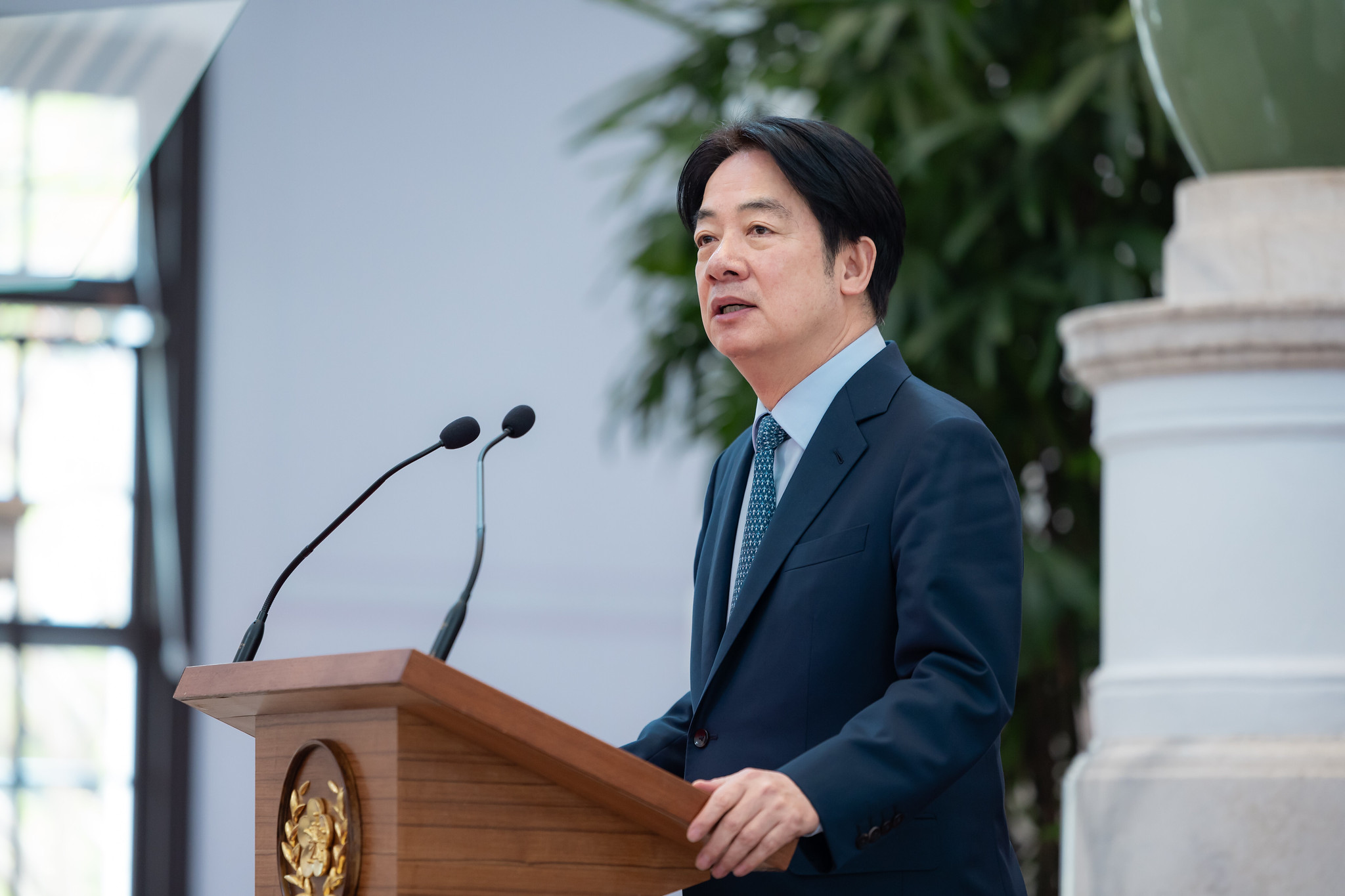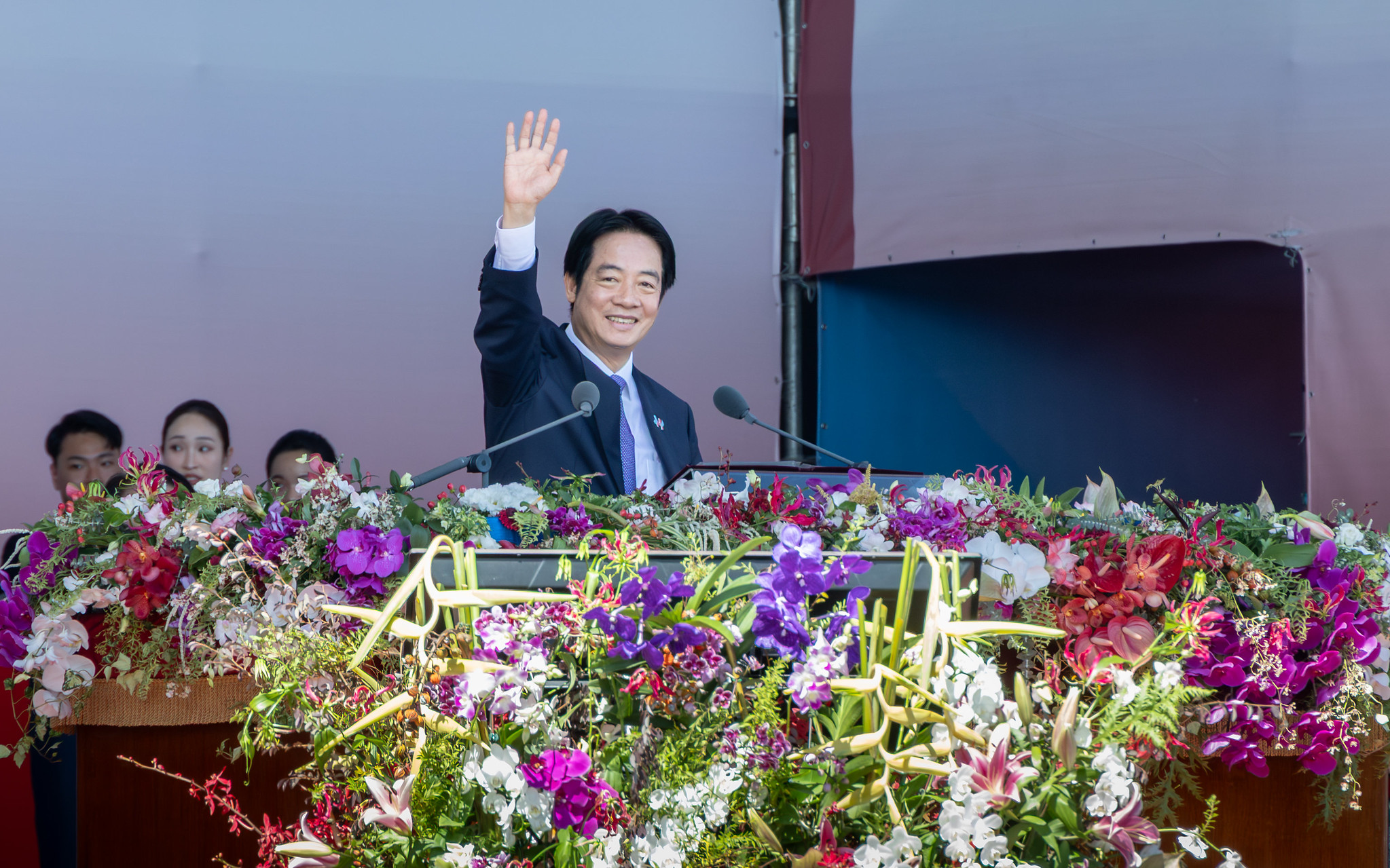President Lai Ching-te’s 17 National Security Measures: A Timely Proposal to Bolster the Safety of Taiwan
In response to the mounting threats and geopolitical tensions created by the PRC, on March 13 President Lai introduced 17 comprehensive national security measures that aim to fortify Taiwan’s defense mechanisms, uphold its sovereignty, and build all-of-society resilience. Picture source: 總統府, March 13, 2025, Flickr, https://www.flickr.com/photos/presidentialoffice/54383716839/in/photostream/.
Prospects & Perspectives No. 23
President Lai Ching-te’s 17 National Security Measures: A Timely Proposal to Bolster the Safety of Taiwan
By Ketty W. Chen
Since President Lai Ching-te took office in May 2024, the People’s Republic of China (PRC) has escalated its intimidation and influence operation against Taiwan. In response to the mounting threats and geopolitical tensions created by the PRC, on March 13 President Lai introduced 17 comprehensive national security measures that aim to fortify Taiwan’s defense mechanisms, uphold its sovereignty, and build all-of-society resilience. These security measures were also a signal to the international community that the Lai administration is determined to safeguard Taiwan. The announcement of the 17 measures also recognized Taiwan’s challenges in tackling non-traditional and hybrid warfare, especially in cybersecurity, cognitive warfare, espionage and influence operations. In addition, these measures represent a recalibration of Taiwan’s national security strategy.
The Seventeen National Security Measures
At the core of President Lai’s security measures is the dedication to secure and safeguard Taiwan’s sovereignty. The National Security Council (NSC) and the Ministry of National Defense (MND) were directed to promote the “Four Pillars of Peace” action plan to oppose China’s efforts to annex Taiwan. The Lai administration also recognized that modern threats are no longer confined to the traditional realm. Therefore, the 17 security measures encompassed reforms in military readiness, domestic laws, civil resilience, and information and cyber security. One major component of these measures had a strong focus on asymmetric warfare capabilities, a long-standing strategy to counterbalance the PRC’s military advantage. By investing in mobile missile systems, drones, and other cost-effective deterrents, the Lai administration aims to raise the costs of invasion to serve as deterrence.
In addition to military readiness, amendments to the National Security Act and related laws are designed to strengthen Taiwan’s counterespionage efforts. The Lai administration now imposes tighter scrutiny on individuals and organization with PRC ties and increases punishment and penalties for colluding with Taiwan’s adversaries. For example, MND was directed to undertake required administration and legislative steps to restore the use of military tribunals to try criminal cases involving active-duty military personnel. The ministry was also directed to propose amendments to the Criminal Code of the Armed Forces regarding penalties for expressions of loyalty to the enemy and to revise the regulations for military personnel and their families receiving retirement benefits, which sent a clear warning to would-be wrongdoers that the retirement benefits of retired personnel involved in pro-PRC united front work and propaganda efforts would be cancelled. Additionally, the creation of a dedicated cybersecurity command reflects Taiwan’s recognition of the growing threat posed by cyberattacks and infiltration.
The 17 measures also seek to strengthen Taiwan’s critical infrastructure protections. Ensuring the security of ports, airports, telecommunication, and energy systems is crucial in the event of a conflict. By conducting vulnerability assessments and implementing modernization programs, the Lai administration aims to continue former President Tsai Ing-wen’s endeavor to reduce Taiwan’s exposure to sabotage and ensure the continuity of government functions. Taiwan’s internal security apparatus will also benefit from increased inter-agency coordination and intelligence-sharing. These enhancements are meant to bolster Taiwan’s ability to respond swiftly to crises, including natural disasters, cyber attacks, or an invasion. The creation of new crisis management mechanism represents a significant step toward greater government responsiveness and public trust.
Reaction from the People’s Republic of China
Upon the unveiling of President Lai’s 17 security measures, Beijing reacted with condemnations of Lai for his “provocation” and “pro-independence agenda.” The People’s Liberation Army (PLA) initiated large-scale military drills around Taiwan. The exercises were described by the PLA as a warning to Taiwan’s government, accusing its leaders of separatism and pushing Taiwan towards war. The PRC also increased non-military threats and propaganda, portraying Lai, in a cartoon, as a worm who is a pawn of the United States but also an authoritarian leader who jailed his political opponents. Cross-Strait relations have already been strained since Lai’s election. Lai’s announcement of the 17 security measures aroused the typical response from the PRC and should not be seen as escalation on Taiwan’s part, as it is a defensive posture in the face of the daily increase of threats from the PRC.
Lai’s security measures should be regarded as strategic adjustments in response to increasing threats and intimidation. The adjustments are designed to buy time for Taiwan to enhance domestic resilience. It is also important to note that President Lai has consistently reiterated his willingness to maintain the status quo in the Taiwan Strait and to engage in dialogue with China under the condition of parity and mutual respect. Thus, the measures should not be interpreted as a rejection of peace, but rather a preparation for deterrence.
Lastly, public opinion in Taiwan has been very consistent in its willingness to defend Taiwan from authoritarian intrusion. The majority of Taiwanese support the idea of strengthening national defense, and are willing to defend Taiwan if it were attacked. The national security initiative by the Lai administration reflected public sentiment and turned societal support into subsequent structural reform, following in the footsteps of, and building upon the efforts of, the previous administration.
Responses by the International Community
International reactions to Lai’s 17 measures have largely followed existing geopolitical alignments. The United States, Taiwan’s most important security partner, expressed support for Taiwan’s right to self-defense. Washington emphasized the importance of peace and stability across the Taiwan Strait.
Japan and several European countries have also been vocal on Taiwan’s security concerns. Japan views Taiwan’s security as integral to its own and has expanded military coordination with the United States in the region. The European Union has proactively strengthened ties with Taipei through trade, technology and partnerships for countering information manipulation. With growing concern over China’s expansionism in the region, Southeast Asian governments such as the Philippines have been increasing vocal and taken a more proactive stance in collaborating with other democratic countries in the region.
Lai’s 17 measures sent a signal to the region as a whole that Taiwan is dedicated to its own national defense and does not take the support of its democratic allies for granted. In an era marked by rising authoritarianism and erosion of democratic norms, the ability of Taiwan, a frontline democracy, to resist coercion and intimidation sets an example for global democratic resilience.
Implications of the Seventeen Security Measures
President Lai’s 17 measures should be evaluated under the broader context of geopolitics. Taiwan is a direct victim of authoritarian intrusion and at the center of the U.S.-China strategic competition. Taiwan’s ability to maintain its sovereignty and safeguard its democracy is important to democracies worldwide. By asserting a stronger national security strategy, Taiwan has made clear its intention of being an active participant in regional security.
Moving forward, President Lai should ensure that the proposed strategy does not erode civil liberties or further political polarization. He needs to maintain the citizens’ support in order to implement the proposed framework effectively and on a long-term basis.
In all, President Lai’s 17 national security measures represent a necessary addition to Taiwan’s existing defense and resilience strategy. They reflect the realities of the current regional security environment, where military threats are compounded by cyber and cognitive warfare, information manipulation, and gray zone operations. The effectiveness and impact of the 17 measures remains to be seen, but President Lai’s declaration is the first step this new administration has taken to further secure and facilitate Taiwan’s security and sovereignty.
(Ketty W. Chen is an Expert Associate with the National Security College, National Australian University.)




